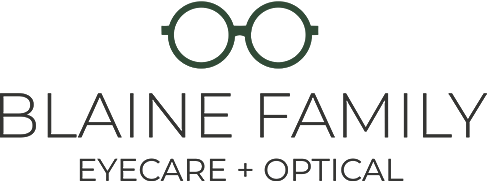
The Difference Between a Comprehensive Eye Exam and Vision Screening
The cornerstone of good eye health lies in regular and thorough examinations. These tests range from simple vision screenings to comprehensive eye exams. While both are significant, they serve distinct purposes and offer different levels of analysis. It's crucial to understand the difference between them to ensure you're getting the right care for your eyes.
What is a Vision Screening?
Vision screening is a relatively straightforward and quick procedure, often conducted in schools, pediatrician's offices, or during a routine physical examination. The primary objective of a vision screening is to identify potential vision problems or eye conditions that may require further assessment.
A typical vision screening involves reading letters or symbols from an eye chart, usually positioned 20 feet away. This test is designed to assess your visual acuity, i.e., your ability to see clearly at varying distances. However, vision screening is a surface-level assessment. It does not delve into the detailed aspects of your eye health.
Understanding Comprehensive Eye Exams
A comprehensive eye exam is a thorough and detailed examination of your eyes and vision. This exam includes several tests to evaluate different aspects of your eye health. This includes checking your eye pressure, evaluating your eye movement and coordination, and examining your eye's interior and exterior for any signs of disease. These exams can detect a range of eye conditions, from common issues like myopia or hyperopia, to serious diseases like glaucoma or cataracts.
A comprehensive eye exam can also reveal signs of systemic diseases like diabetes or hypertension, which can manifest in your eyes. Thus, these exams provide a holistic view of not just your eye health, but also your overall health.
The Difference Between Comprehensive Eye Exams and Vision Screening
While both vision screening and comprehensive eye exams aim to assess your vision and eye health, the difference between them lies in the depth and scope of the examination.
Vision screening is a preliminary assessment, designed to identify individuals who may have vision problems. It's like a filter that catches obvious issues. However, a normal vision screening result doesn't necessarily mean you have perfect eye health. It only signifies that you don't have a significant vision problem that affects your ability to see at a distance.
On the other hand, a comprehensive eye exam is a complete evaluation of your eye health and vision. It doesn't just test your visual acuity, but also assesses various aspects of your eye function and health. It can detect minor to major eye conditions, some of which may not even show symptoms in their early stages.
The Importance Role of an Optometrist
An optometrist is a trained professional who can conduct detailed eye exams, diagnose eye conditions, and prescribe corrective lenses or medication. They also provide advice on eye care and can refer you to an ophthalmologist for further evaluation or treatment if needed.
Many serious eye conditions don't show early symptoms and can only be detected through a comprehensive eye exam. Regular comprehensive eye exams are especially important for individuals with a high risk of eye diseases, like those with diabetes, hypertension, or a family history of eye conditions.
Ensuring Clear and Healthy Vision
Taking care of our eyes is just as important as taking care of our overall health. While vision screenings are useful for identifying potential vision problems, they do not provide a complete picture of our eye health. Comprehensive eye exams, on the other hand, offer a detailed analysis of our eye health and can help detect eye conditions early, making them an indispensable tool in our eye care routine.
Make comprehensive eye exams a part of your regular health check-ups, and ensure that your eyes are receiving the care they deserve. Schedule your next eye exam at Blaine Family Eyecare in our Blaine, Minnesota office. We provide quality eye care services and products for the entire family. Please call (763) 717-0072 to schedule an appointment today.







